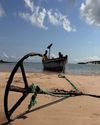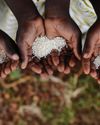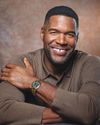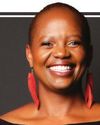
While the stand-down siren has been sounded, we must remain vigilant and take precautions as there are still thousands of people around the world contracting milder forms of the virus; in some cases still resulting in serious issues for people who have underlying health conditions. Some facts from the WHO website suggest that (as of early May 2023), over the last three years, approximately 756 million Covid cases were recorded with approximately 7 million people who lost their lives. Assuming the global population at about 8 billion, this translates to almost 9.5% of the population being infected and approximately 0.09% of the population having died. Comparing this with the Spanish Flu that started in February 1918 and lasted approximately two years, 500 million people or a third of the then global population were infected and about 50 million people died (3.3% of the global population). Though spread a century apart, these are events, particularly Covid-19, that have prepared us to deal with and overcome adversity together as a global community.
There were many lessons from this dark period in human history, the most significant of which was the importance of leadership at all levels. Some countries, with comparable economic, demographic, social and developmental status, managed better than their peers. A trait that was consistent with good leaders was effective, clear and periodic communications. There is no greater leadership failure in a crisis than delayed, ineffective and inconsistent communications. People understand problems as it's a sad reality of the majority of human existence. Reinforcing problems and assigning blame only spreads uncertainty and creates panic which is synonymous with most politicians; what people want to know is that they are secure and that appropriate, quantifiable and urgent action is being taken to protect them.
Denne historien er fra June - July 2023-utgaven av Forbes Africa.
Start din 7-dagers gratis prøveperiode på Magzter GOLD for å få tilgang til tusenvis av utvalgte premiumhistorier og 9000+ magasiner og aviser.
Allerede abonnent ? Logg på
Denne historien er fra June - July 2023-utgaven av Forbes Africa.
Start din 7-dagers gratis prøveperiode på Magzter GOLD for å få tilgang til tusenvis av utvalgte premiumhistorier og 9000+ magasiner og aviser.
Allerede abonnent? Logg på

PLAYING THEIR CARDS RIGHT
THESE UGANDAN GAME DESIGNERS AND FOUNDERS ARE HOLDING UP A MIRROR TO SOCIETY WITH THEIR ART.

THE PLACE TO DO NOTHING
VILANCULOS IS MOZAMBIQUE’S UNTOUCHED GEM WITH ITS MAGNIFICENT SUN, SAND, SURF AND HORSES, AS THIS WRITER DISCOVERED.

ADVANCING AGRICULTURE
AFRICAN ENTREPRENEURS ABROAD ARE RETURNING TO PURSUE AGRICULTURE AND INVEST IN OPPORTUNITIES ON THE CONTINENT, PROVIDING SUBSISTENCE FARMERS WITH THE TECH TOOLS AND KNOW-HOW TO BRING CROPS LIKE FONIO AND CASSAVA TO THE WORLD'S TABLES.

CALL INTO QUESTION
ARTIFICIAL INTELLIGENCE BOOSTS SMARTPHONES GLOBALLY, BUT AFRICA FACES CHALLENGES.

MICHAEL STRAHAN IS ON THE CLOCK
WITH THREE TV JOBS (AND COUNTING), THE PRO FOOTBALL HALL OF FAMER MAKES HIS DAYS SEEM LONGER THAN 24 HOURS AND REWARDS HIMSELF WITH A MULTIMILLION-DOLLAR WATCH COLLECTION. BUT AT 53, HE'S ALREADY DREAMING OF RETIRING. AGAIN.

KINGDOM CALLING
SAUDI ARABIA IS LOOKING HARD AT AFRICA TO UNLOCK GROWTH BEYOND OIL.

SPARKING COMPETITION
CHINESE BRANDS ARE GAINING MOMENTUM AND IGNITING A NEW ERA IN SOUTH AFRICA'S AUTOMOTIVE LANDSCAPE. WHETHER IT'S A SLEEK NEW SUV ROLLING OFF A CHINESE ASSEMBLY LINE OR A LOCALLY-PRODUCED VEHICLE DESIGNED TO COMPETE ON THE GLOBAL STAGE, THE INDUSTRY IS SPEEDING WITH POTENTIAL AND POSSIBILITIES.

NATURE'S WARRIOR
THE MANAGING DIRECTOR FOR AFRICA AND GLOBAL PARTNERSHIPS AT THE WORLD RESOURCES INSTITUTE, WANJIRA MATHAI HAS LED THE GREEN BELT MOVEMENT IN KENYA AS THE FORMER CHAIR, THE ORGANIZATION HER MOTHER, THE LATE WANGARI MAATHAI FOUNDED IN 1977. FROM NAIROBI, SHE SPOKE TO FORBES AFRICA ABOUT ISSUES SUCH AS CLIMATE CHANGE, YOUTH LEADERSHIP AND LANDSCAPE RESTORATION - CRUCIAL CONVERSATIONS AS SHE HONORS THE 20TH ANNIVERSARY OF HER MOTHER'S NOBEL PEACE PRIZE. HERE ARE EXCLUSIVE EXCERPTS FROM THE INTERVIEW.

TALK AIN'T CHEAP
PODCAST SUPERSTAR ALEX COOPER BUILT A MEDIA EMPIRE IN THE STREAMING ECONOMY. IN AUGUST, SHE INKED A $125 MILLION DEAL WITH LEGACY RADIO SERVICE SIRIUSXM TO BRING A NEW GENERATION OF FANS TO THE AGING SATELLITE NETWORK. NOW SHE HAS TO DELIVER.

A NEW ERA IN ONCOLOGY: TACKLING THE DREADED 'C' WORD WITH AI
AS ARTIFICIAL INTELLIGENCE RESHAPES HEALTHCARE, THE FIGHT AGAINST CANCER IS WITNESSING UNPRECEDENTED BREAKTHROUGHS, FROM MICROSCOPIC NANOROBOTS TO VIRTUAL TREATMENT TWINS. THIS ACCELERATION IN DRUG DISCOVERY IS JUST ONE EXAMPLE OF AI'S IMPACT ON ONCOLOGY, NOW AND IN THE FUTURE.
